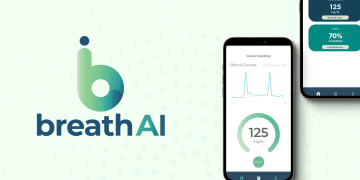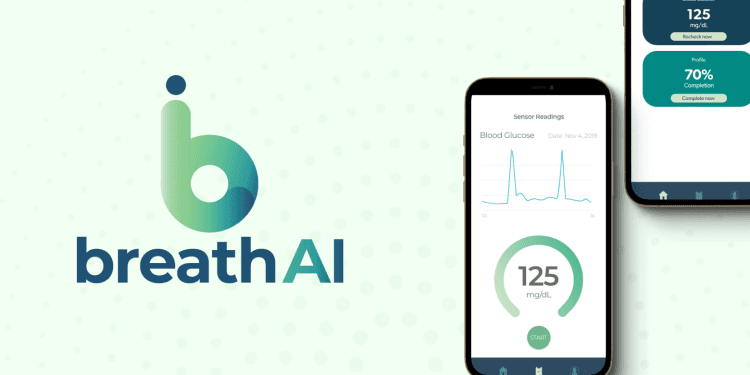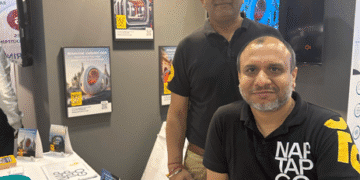Pune-based startup BreathAI is set to launch a groundbreaking wearable device that focuses on the often-overlooked aspect of breath. With a compelling mission statement hanging above its switchboard — “Maximum health and happiness for maximum people: 1 million users by 2025” — BreathAI aims to redefine the way individuals approach well-being.
Founded by Sanjay Phadke, a seasoned professional with a background in mechanical engineering, banking, and fintech, BreathAI brings a unique blend of science and spirituality to the forefront. The wearable device, set to hit the market this week, goes beyond conventional fitness trackers by placing the breath at the core of its philosophy.
Phadke believes that the perfect breath can unlock not only a good heart but also quality sleep and overall happiness. “Breath is not just an exchange of gases. Breath rate is an important health indicator just like heart rate. It is also the master key to unlock all the systems of the body and bring them back into harmony with one another,” he emphasizes.
While the market is saturated with wearable devices that track heartbeat, sleep, steps, and calories, BreathAI distinguishes itself by incorporating a comprehensive wellness component. The wearable device, complemented by a mobile app, aims to provide users with a precise understanding of their breath patterns and fluctuations. This information directly correlates with the health of their heart, brain, and overall physiological well-being.
“At BreathAI, we track the most crucial element of breath to its logical conclusion of overall improvement of body, mind, and holistic health/wellness,” says Phadke. The mobile app further enhances the user experience by offering personalized recommendations based on questionnaires. These recommendations manifest as videos on mindfulness and fitness activities, empowering users to make daily lifestyle changes aimed at reducing stress and enhancing their overall well-being.
In an era where stress-related illnesses are on the rise globally, BreathAI’s mission is particularly timely. Stress quantification, often neglected, takes center stage in BreathAI’s approach. Phadke warns, “Stress, today, has no independent quantification. Everybody is stressed, yet nobody is doing much about it. It has become okay to say that one is stressed without realizing that stress results in a heart attack.”
Acknowledging the urgency of addressing stress-related issues, the Ministry of Science and Technology granted BreathAI Rs 10 lakh during 2018-19, providing the initial impetus for the startup. Since then, the company has garnered support from friends, family, and angel investors. Phadke underscores the importance of patient capital, recognizing that transformative change takes time.
As BreathAI prepares to enter the market, it aims to contribute to a healthier, happier society by promoting stress awareness and offering practical solutions. The wearable device is poised to be a breath of fresh air in the world of health and wellness, emphasizing that true well-being begins with a deep understanding of one’s breath. BreathAI invites users to embark on a journey to better health—one breath at a time.























